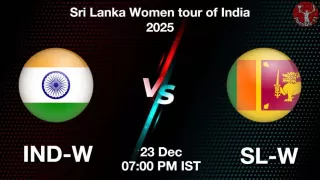Global Gambling Practices: How Different Cultures Approach Betting

Gambling practices vary widely across the globe, shaped by cultural norms, historical contexts, and legal frameworks. From traditional games of chance to sophisticated online betting platforms, the way societies approach gambling reflects their values and attitudes towards risk and entertainment. This article explores the diverse global perspectives on gambling, examining how different cultures engage with and regulate this ubiquitous activity.
1. Western Europe: Casinos and Social Entertainment
In Western Europe, gambling is often seen as a form of social entertainment rather than solely a means of monetary gain. Countries like France and Germany boast a rich casino culture where gambling establishments are integrated into the tourism and leisure sectors. The emphasis is on responsible gaming and providing a luxurious experience for patrons. The region's gambling traditions date back centuries, evolving alongside cultural practices and economic interests.
France, known for its elegant casinos and cultural allure, has a longstanding tradition of gambling dating back to the 17th century. The famous Casino de Monte-Carlo in Monaco epitomizes the luxurious and social aspect of gambling in Western Europe, attracting affluent patrons from around the world. Similarly, Germany's vibrant casino scene, particularly in cities like Baden-Baden and Wiesbaden, reflects a blend of historical prestige and modern entertainment options.
2. North America: The Rise of Las Vegas and Tribal Gaming
North America, particularly the United States, is synonymous with the emergence of gambling hubs like Las Vegas. Here, gambling is legalized and regulated at both state and tribal levels, presenting a diverse landscape from high-end resorts on the Strip to tribal casinos that support local economies. The culture of gambling in North America blends entertainment with business acumen, drawing millions of visitors annually. The evolution of gambling in the U.S. reflects changing societal attitudes and legislative advancements, with states increasingly viewing gaming as a revenue generator.
Las Vegas, Nevada, stands as a testament to North America's embrace of gambling as a form of entertainment and economic driver. Established in the early 20th century, Las Vegas evolved from a modest gambling outpost into a global destination renowned for its lavish resorts, world-class entertainment, and round-the-clock gaming offerings. The city's iconic Strip is lined with mega-casinos that cater to diverse tastes, featuring themed resorts such as the Venetian and Bellagio alongside modern complexes like the Cosmopolitan and Aria.
In addition to commercial casinos, North America also boasts a significant presence of tribal gaming enterprises. Native American tribes operate casinos on sovereign land, contributing to local economies and preserving cultural heritage. These tribal casinos range from small gaming facilities to expansive resorts, providing jobs and revenue streams that support community development initiatives. The growth of tribal gaming underscores the complex regulatory landscape and cooperative agreements between tribes and state governments.
3. Asia: Tradition and Innovation in Gambling
Asia showcases a blend of ancient gambling traditions and modern innovations. Macau, China's special administrative region, ranks as the world's largest gambling market, celebrated for its opulent casinos and high-stakes gaming opportunities. Conversely, Japan has historically held reservations about gambling, but recent legislative changes are paving the way for integrated resorts to bolster tourism and economic growth. The region's diverse cultural landscapes influence perceptions and regulations surrounding gambling, with some countries embracing gaming tourism while others prioritize cultural and social stability.
Macau's transformation into a global gambling powerhouse illustrates Asia's dynamic approach to gaming. Once a Portuguese colony focused on fishing and trade, Macau legalized gambling in the early 19th century and subsequently emerged as a hub for casinos and entertainment. Today, Macau's skyline boasts iconic resorts like the Venetian Macao and MGM Grand, drawing millions of visitors annually from mainland China and beyond.
In contrast, Japan has historically restricted gambling activities due to cultural and social concerns. However, the passage of the Integrated Resort Promotion Law in 2016 marked a significant shift in Japan's approach to gaming. The legislation authorized the development of integrated resorts, which combine casinos with hotels, entertainment venues, and conference facilities. Proponents argue that integrated resorts will stimulate tourism, create jobs, and boost local economies, while critics express concerns about potential social issues and gambling addiction.
4. Africa: Informal Gambling and Regulatory Challenges
In many African countries, gambling assumes a more informal and community-oriented nature. Traditional games and sports betting are widespread, often in the absence of robust regulatory frameworks. South Africa, with its established casino industry, contrasts with regions where informal betting markets thrive despite legal ambiguities. The challenge lies in balancing cultural acceptance with regulatory oversight. The cultural significance of gambling in Africa varies widely, with some communities viewing it as a social pastime while others contend with the social and economic impacts of unregulated gaming.
South Africa has a complex gambling history shaped by apartheid-era legislation and subsequent reforms. The National Gambling Act of 1996 legalized casinos and other forms of gambling, leading to the growth of a regulated industry that supports tourism and economic development. Today, South Africa hosts numerous casinos, including the Sun City Resort in the North West Province and the Montecasino in Johannesburg, offering a range of gaming options and entertainment experiences.
Outside of South Africa, many African countries feature informal gambling sectors operating outside regulatory frameworks. Traditional games of chance, such as dice and card games, are popular in local communities and serve as social activities during cultural celebrations and gatherings. Sports betting has also gained popularity, driven by global sporting events and the proliferation of online platforms offering betting opportunities. While some African governments have enacted laws to regulate gambling and generate revenue, enforcement and oversight remain challenging in many regions.
5. Oceania: Pokies and Cultural Impact
Australia and New Zealand boast unique gambling cultures centered around "pokies" (slot machines). These countries have some of the highest per capita gambling rates globally, with pokies serving as a popular form of entertainment in pubs and clubs. The impact of gambling on indigenous communities, particularly in Australia, remains a topic of debate, highlighting the intersection of cultural heritage and modern gaming practices. Both nations have implemented regulatory measures to address gambling addiction and promote responsible gaming practices.
In Australia, pokies are ubiquitous in local venues, offering a blend of entertainment and potential winnings. The accessibility of pokies in pubs and clubs has raised concerns about gambling-related harm, prompting government initiatives to introduce harm-minimization measures and support services. Indigenous communities in Australia face disproportionate challenges related to gambling, with higher rates of problem gambling and associated social consequences. Efforts to address these issues include community-led programs and initiatives promoting culturally sensitive support services.
New Zealand's approach to gambling reflects a balance between entertainment and social responsibility. The country's Gambling Act of 2003 regulates gambling activities and promotes harm prevention through public education and support services. While pokies enjoy popularity in New Zealand, particularly in community clubs, the government has implemented measures to limit the number of machines and mitigate potential harm. The Maori community, New Zealand's indigenous population, advocates for culturally appropriate interventions addressing gambling-related issues and supporting community well-being.
Conclusion
Global gambling practices reveal a tapestry of cultural attitudes towards risk, entertainment, and regulation. For those looking to experience this diversity firsthand, you can play at 777 bet casino, which offers a variety of games reflecting different cultural gambling traditions. While some regions embrace gambling as a social and economic driver, others approach it cautiously or confront regulatory challenges. Understanding these diverse perspectives is essential for shaping responsible gambling policies and fostering a balanced approach that respects cultural differences while addressing societal concerns. As the gambling industry continues to evolve, so too will the global dialogue on its impact and regulation. By acknowledging the cultural nuances and societal implications of gambling, policymakers can promote a sustainable and inclusive approach to this global phenomenon.













Give Your Feedback